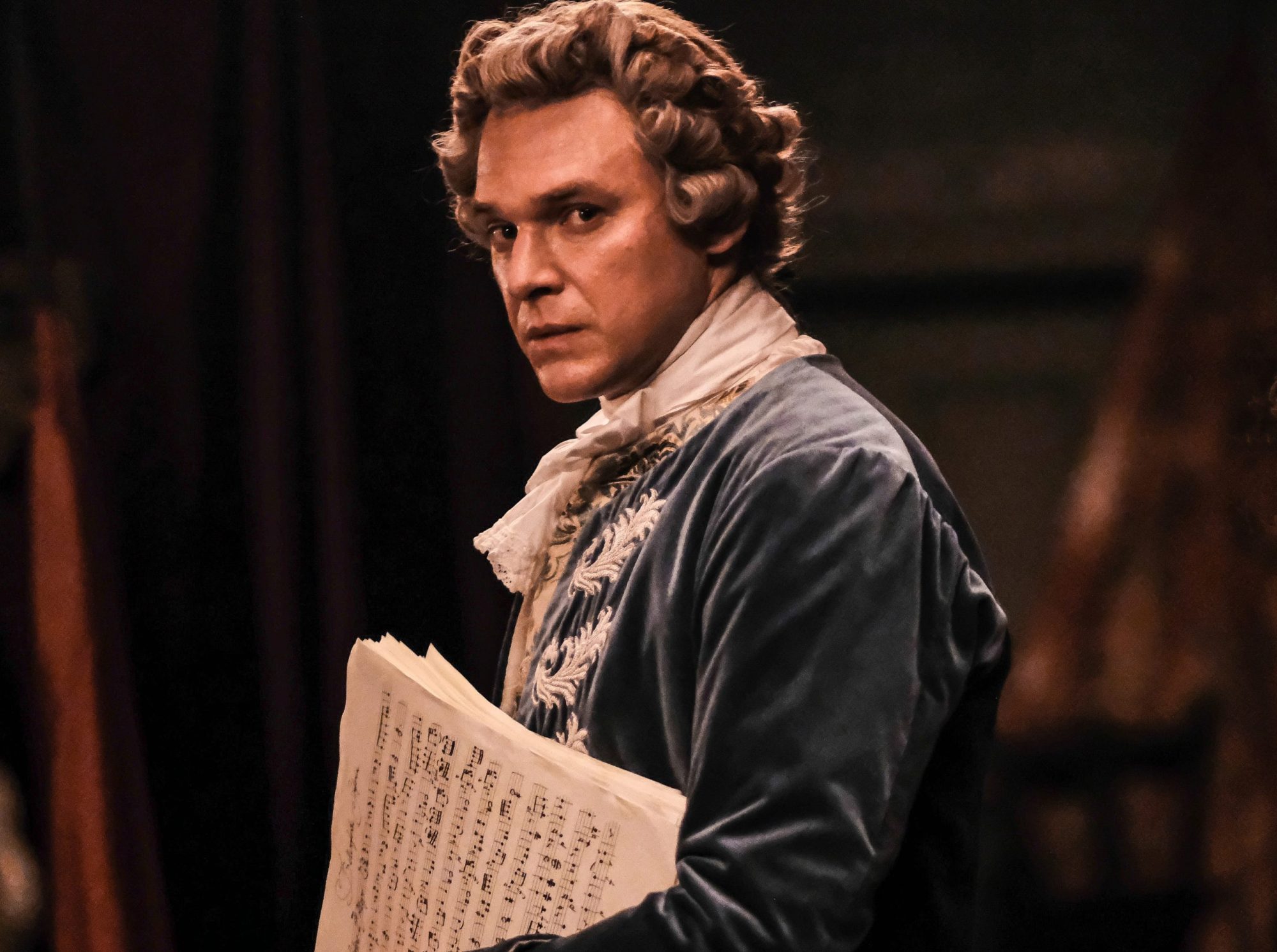
- Golden Globe Awards
Il Boemo (Czech Republic)
Il Boemo tells the life story of an 18th century composer who traveled from Prague to Venice, Italy in 1763 at the age of 25 to pursue his dream of creating music and succeeded. His name being Josef Mysliveček, which was difficult to pronounce, he was nicknamed “il Boemo” by the Italians, meaning a man from Bohemia, a historical kingdom now part of the Czech Republic.
Czech director Petr Vaclav had already made a 2015 documentary about the subject, Confession of the Vanished, where he employed voice-over narration to express the composer’s reflections on his own life. With this feature film Václav fulfilled his own dream of giving a full-bodied interpretation of the life of this tall and handsome stranger, played by Czech singer Vojtěch Dyk, through fabulous period costumes and settings, wonderful opera performances, imagined love relationships with various noblewomen who furthered the composer’s career and inspired his music.
Several historical figures intersected with il Boemo, from music teacher Giovanni Pescetti, who also taught Antonio Salieri, Mozart’s teacher, to coloratura soprano Caterina Gabrielli (Barbara Ronchi), who sang in his opera Il Bellerofonte, commissioned by the Teatro San Carlo in Naples in 1767, and in the 1778 L’Olimpiade.
The film depicts Mysliveček’s first meeting with a 14-year-old Wolfgang Amadeus Mozart and his father Leopold, that took place in Bologna in 1770, where the young Austrian prodigy asked for advice from the 33-year-old veteran on how to please Italian audiences. A later scene, set in 1778, shows how Queen Maria Carolina, married to Ferdinand, King of Naples, sister of Maria Antoinette, Queen of France, dismissed the suggestion of offering a opera commission to Mozart, “that vagabond, who runs across the globe, instead of serving my mother,” Austrian Empress Maria Theresa.
The film starts from the end, when il Boemo dies in Rome in 1781 at the age of 43, after a long battle with syphilis. A bitter Leopold Mozart wrote to his son that he blamed the Bohemian composer’s misfortune on “his despicable lifestyle.” Ironically Mysliveček was celebrated in his lifetime, then quickly forgotten, while Mozart, who also died young of an illness at the age of 35, became much more famous after his death and is still considered one of the great musicians of all time.
Petr Vaclav said of Mysliveček in the EPK: “He achieved self-fulfillment, and he left behind his music which still speaks to us even after 240 years of oblivion.” It was through a new production of L’Olimpiade conducted by Václav Luks in 2013, that the director became convinced of the exceptional talent of this musician that he felt deserved to be rediscovered.
The word “Bohemian” also means a person with artistic or literary interests who disregards conventional standards of behavior, and it certainly applies to this man, who defied his father’s expectations that his son would run the family mill, in order to pursue his true calling of becoming a music composer.